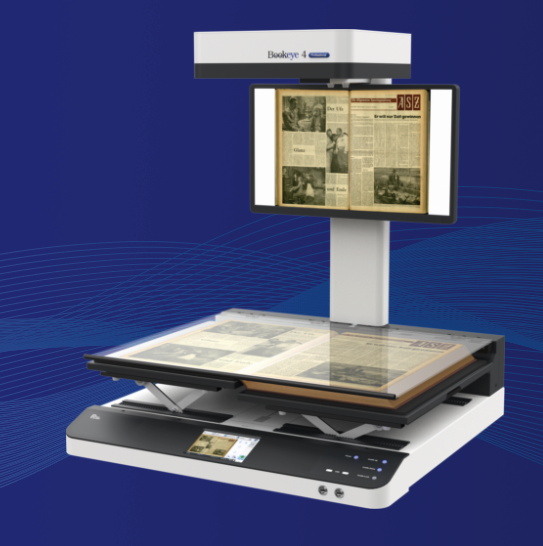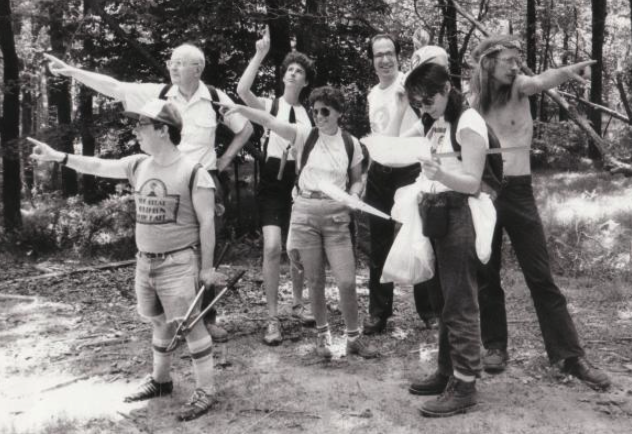Archive alive!
To scan or not to scan. That is some question.
“Information wants to be free.” – Stewart Brand (1984)
Why not just scan everything in the archive? Look what Google did for more than 40 million books forlornly sitting on library shelves throughout the world, unloved, unknown and worst of all, unread. Google started scanning them.
After enlisting the cooperation of librarians and trundling some high-octane scanning tools into the stacks, Google made all those otherwise orphaned books accessible. They OCR’d everything from rare titles to historical materials to … well, whatever it is that is represented by those 40 million books. Once scanned, the contents of these works can now be surfaced almost effortlessly at the end of a specialized Google search. It is a brand of magic that would make Merlin throw out his wand and pointy hat and quit sorcery to enroll in a computer science class.

The benefits of scanning text collections, as we know now from G-Books, are very clear. What’s stopping archivists? Why don’t archivists roll in the scanners, digitize the fonds, upload the results to their Web site and Presto! Change-o! Instant full-text search, easier finding without all that record profiling and best of all, protection of rare, fragile or popular materials from the abuses of mishandling.
Would that it were that easy.
Start with the very simple fact that no archive in the world has a fraction of the money that Google does. Scanning costs money. It’s laborious. It’s expensive to do on a large scale; even such archival behemoths as the Smithsonian and the Library of Congress haven’t burrowed very deeply into their own collections and those guys are working with jillionaire budgets.
When it comes to the “scan/no scan” question, see what the archivists at the Peel Archives and Museum (serving the region of Peel in and around Brompton, Ontario) have to say on the subject in this interesting post. It is not a simple issue.
In the same vein, this video covers much of the same turf. It comes courtesy of the Australian Mutuals History. In short, scan where you can or scan where you must, but understand that finding aids and archivists are still the best way for archives to help their patrons get their (gloved and protected) hands on an archival record.
Rock and Roll Hall of Fame Library and Archives

Not everyone from the heyday of rock and roll was so burned out that they forgot to keep stuff. The original rockers and rappers, stars and wannabes alike, left a considerable amount of interesting materials behind. These are records donated by obsessed fans and collectors, collections of actual musicians like Steve “Little Steven” Van Zandt (Bruce Springsteen’s guitarist sidekick, Silvio from “The Sopranos” and host of Little Steven’s Underground Garage satellite radio show) and assorted business records, concert ephemera and the other unique materials, like stuff from the Ramones’ manager Danny Fields. (Note: Don’t ever describe archival records as “stuff”).
Note: Don’t ever describe archival records as “stuff”
Rock and roll will never die, but parts of it will be properly mummified for eternity on the shores of Lake Erie.
- Of interest to archivists: See “Preservation: 88 Lines on 44 Techniques.” (PDF will save locally; N.B. “Resources” links on last page.)
- Library and Archives
- Archives catalog
- Scope of the archives: “Archival Collections“
- Website: Rock and Roll Hall of Fame
Finding Archives: Four Places to Start
Seek and ye shall find. But even St. Matthew needed a place to start …

To locate who minds the archival goods and where they keep them — be those goods the collected letters of an author say, or audio recordings made by an otherwise obscure sound engineer or the sketches and models amassed by an architect over a professional lifetime — you are going to need some industrial strength finding aids.
Here are four of them that I relied on when I was a working librarian that you may find helpful – but of course, Prof. Gibbons is the go-to authority when it comes to this. In all instances, search the holdings as you would any library catalog – but don’t rely on the EZ search function: go straight to the advanced search for maximum control over search syntax and more concise results.
ArchiveGrid
https://researchworks.oclc.org/archivegrid/
This well-designed database of archival holdings is a service of OCLC, the mother of all library catalogs, WorldCat (see below).
Example
Where might you find the collected papers and related collections for rapper Tupac Shakur? Historical events like the great power blackout of 1965? The Lollapalooza Festival? What about a collection of 1990s-era video games and consoles from the founder of SEGA? Archives are not just a mess of letters stuffed into boxes and then donated by the family of a two-term Congressman just to get the crap out of the attic.
***
Library of Congress (Finding Aids: Browse Collections)
https://findingaids.loc.gov/browse/collections/a
Without waxing poetic about all the services to researchers that the world’s largest library provides, let’s just say the LoC should be your new BFF in research. That’s especially true when it comes to their remarkable collection of archives. The collection is easy to browse and even if you are not looking up something specific, it’s fun to rifle through the alphabet and see what they’ve got.
Example
Look up, in the sky, it’s a bird! It’s a plane. It’s a … plane. Airplanes as we all know got into the sky one December morning in 1903 in Kitty Hawk, NC thanks to some single-minded bike mechanics named Orville and Wilbur. And while boys from Dayton get all the memorials and awards and historical credit for giving us modern citizens two-hour ground holds at LaGuardia, they didn’t do it alone. They corresponded along the way with a fellow inventor with an interest in flying and gliders named Octave Chanute. Aviation buffs and historians of pioneering inventions in aerospace can see what Mr. Chanute had to say about what the Wright Bros. were working on; see the archival record of his papers deposited at the LoC. (Look under “O” for Octave.) No word about his frequent flyer status.
***
New York Public Library
http://www.nypl.org
You do have a NYPL library card, right? If not, for shame! What kind of a student/ New Yorker / archivist / thinker are you? Get in gear and apply for one right this instant!
The holdings are vast, the catalogs are immense and all you need is this magical incantation to locating archival materials galore: type archival mix in the advanced search field for format and go nuts.
***
World Cat
https://www.worldcat.org/
The library catalog of library catalogs, WorldCat is the handiwork of participating libraries the world over who agree to make their holdings searchable along with those of other institutions. The way to cut to the chase is to use the selector archival material in the Advanced Search field for format. This cat swings, man.